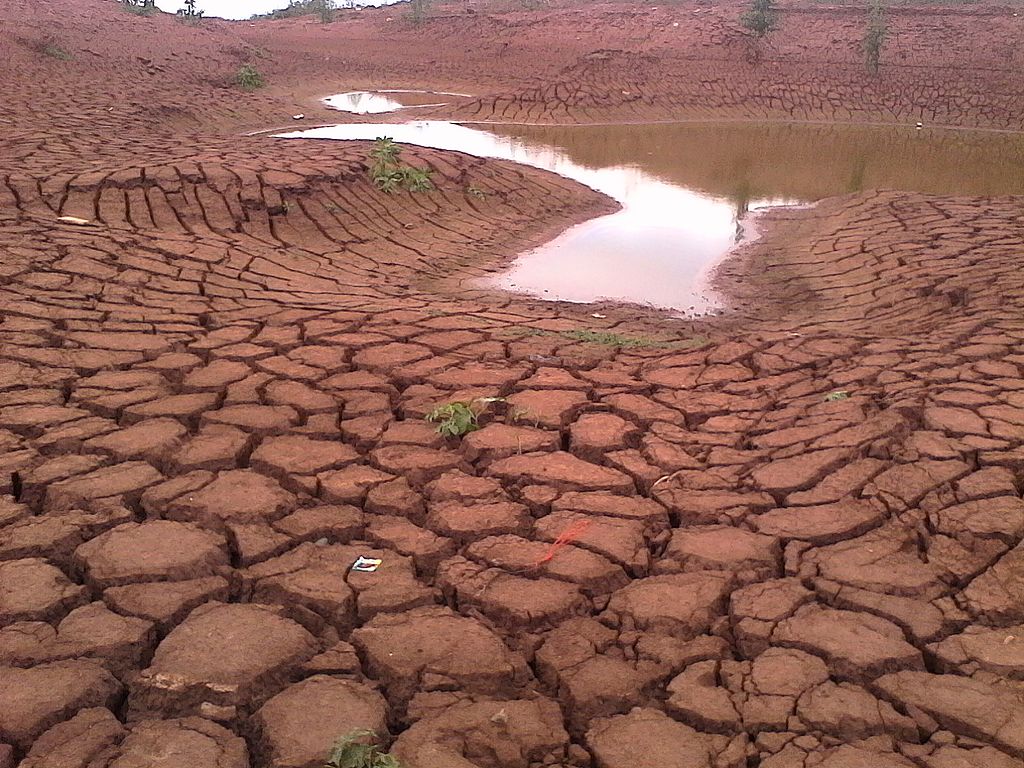Drought near Agadir, Morocco (Photo: WikiMedia Commons)
Climate change is increasingly visible in the Middle East and North Africa (MENA) region. Concerns are high for the socio-political impacts of drought, inadequate food and water supplies and extreme weather events.
Last month, Iraq's Ministry of Water Resources warned that Iraq's second-largest lake, Lake Razzaza, is on the verge of drying up. The lake is a major source of livelihood in Iraq - hundreds of fishing families depend on catches from the water. Drought, ignored infrastructure and dams built in Iran and Turkey now mean that mostly dead fish show up around the dried-up lake.
Meanwhile, the Moroccan government warned of the country's worst drought in decades. Morocco's rainfall is 64% less than average - seen as "catastrophic" for the national agricultural industry. "This is Morocco's worst drought in 30 years. Reserves of groundwater are almost depleted in some agricultural regions such as Souss,'' so said climate expert Mohamed Benabou.
Across MENA, the summer of 2021 was one of the hottest ever, with temperatures reaching 50 degrees Celsius in several areas.
Major concerns for the coming decades
Although the MENA responsible for 3% of total global emissions since 1850, it is one of the regions where climate change will be felt most in the coming decades. Temperatures are expected to rise by 2 to 2.7 degrees between 2040 and 2059 - and up to 3.3 degrees in some regions. For the dry desert regions of MENA, this temperature rise could be dramatic if there are no major policy changes - both in MENA and among major polluters worldwide.
A report by the EU Institute of Security Studies (EUISS) paints a dramatic picture for several countries in the region. The institute's deputy director Florence Gaub told that "we already know that in Tunisia by 2030 there will be insufficient water to adequately supply the population, even if the current temperature rise does not continue." There are also huge concerns in Syria and Iraq about the increasing drought for food and water security for the conflict-affected populations.
Across the region, however, there is still a lot of potential in mitigating temperature rise. Better handling of water use in the agricultural sector, investing in water desalination and using solar energy are obvious options here. Several wealthy countries have already pledged to invest in these.
Social insecurity
The uncertainty associated with climate change can lead to great social insecurity, so warn various agencies. "Conflict (due to climate change) is likely to increase. There is no time to lose. We need to find sustainable solutions that guarantee water and food for future generations," Gerry Garvey of the Danish Refugee Council said.
Due to climate change, people tend to migrate from rural areas to cities, where the issues of unemployment and poverty are already high. The Arab Spring in 2011 has previously shown that the young population in MENA is capable of sparking major protests in times of unemployment, recession and food insecurity. Prior to the Arab Spring, Syria experienced one of the biggest droughts in 100 years. President Assad's violent response to the impoverished population led to the now familiar, dramatic consequences. A government that is not adaptive to the threat of climate change risks great social insecurity.
Water pollution
Water quality is also severely affected by increasing drought. Pollutants in rivers and reservoirs are increasing - this is an existential danger to populations in the region. In Iraq, "the land between the two rivers", the Euphrates and Tigris rivers are increasingly dried up and polluted. While in Basra, southern Iraq, oil exports are booming, the city has been the scene of major protests by desperate populations for years - they are completely impoverished and deprived of basic water and food supplies. The contrast could not be greater.
It is crucial that historical polluters worldwide take responsibility in supporting the regions in MENA that will be most affected by climate change. In our study Climate justice: African perspectives & EU policies we make a number of recommendations for this purpose.
Sources: Reuters I Reuters II DW I DW II EUISS
Photo: WikiMedia Commons




